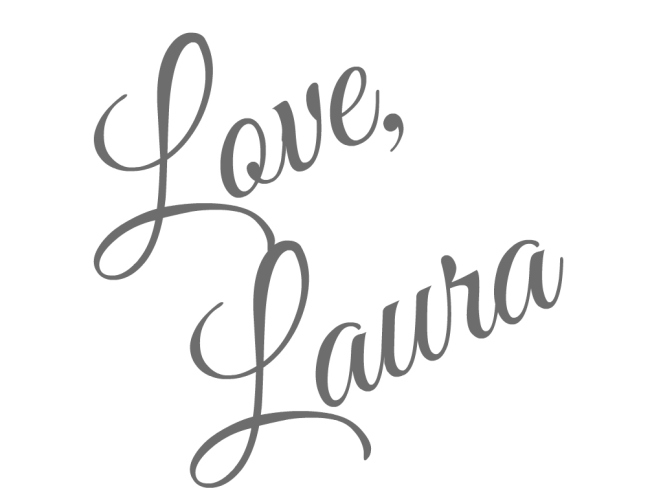I recently opened up about my experience with high-functioning anxiety. Sharing my vulnerabilities isn’t easy, but I believe my story can offer support to others. While I usually appear strong, inside, I’ve often felt the weight of high-functioning anxiety. Thankfully, I’ve discovered effective strategies for coping and finding calm. I want to share these techniques because I believe everyone deserves support and peace of mind amidst life’s challenges.
First and foremost, if you suffer with anxiety, I want you to know that your anxiety doesn’t define you. It’s just a part of who you are, and that’s okay. Accepting that has been a game-changer for me. It’s allowed me to let go of the guilt and self-judgment and embrace my anxiety as a natural human experience. (see below for the seven signs of high-functioning anxiety)
There was a time in my life when high-functioning anxiety consumed me, and I found myself engaging in unhealthy behaviors to cope. Looking back, I didn’t like the person I had become during that phase. However, that realization became a turning point in my journey towards making a change.
Managing high-functioning anxiety is a journey, not a destination. There are ups and downs, and that’s okay. I celebrate even the smallest steps of progress I have made along the way.
The first step towards a better path was: Self-Reflection and Acceptance
Acknowledging the negative impact of my behaviors was a crucial step. I took time to reflect on how these coping mechanisms were not aligned with the person I wanted to be. I accepted that change was necessary for my well-being, growth, and peace. While I’m not going to share here all the details of what caused my anxiety, it is important to get to the root problem. Nothing will change if nothing changes.
Recognizing Unhealthy Coping Mechanisms
My high-functioning anxiety led me down a path of unhealthy coping mechanisms. Instead of addressing my anxiety directly, I found myself engaging in excessive exercise and restricting my food intake as a way to manage my emotions. Unfortunately, these behaviors only created greater issues. While physically I looked healthy, my mental health was distressing. When an injury caused me to no longer be able to exercise, I finally recognized that relying on exercise as avoidance was not serving me well. It was essential to find healthier ways to navigate and address my anxiety.
Embracing Healthy Coping Strategies
Once I had the determination to change, I sought out healthy coping strategies that would better serve me. In the past, engaging in regular physical exercise had been a go-to outlet for releasing tension, boosting my mood, and temporarily improving my mental health. However, circumstances had changed, and I was no longer able to rely on this particular outlet.
That’s when I turned to journaling and intentional actions as my new means of managing anxiety. I am incredibly grateful that I discovered the power of journaling as a tool for expressing and processing my emotions in a healthier way. At times, my journal entries might seem like a rambling mess, but I’ve come to accept that working through emotions can be messy.
Through journaling, I found a safe space to unload my thoughts, fears, and insecurities without judgment. Putting pen to paper allowed me to externalize my anxieties, making them tangible and easier to confront. The act of writing itself became cathartic, helping me gain clarity and perspective on the root causes of my anxieties.
Sometimes, the process of journaling led me to unexpected revelations and insights. As I poured my thoughts onto the pages, patterns emerged, and I could trace recurring triggers or negative thought patterns that fueled my anxiety. This awareness empowered me to challenge and reframe those patterns, gradually replacing them with more positive and constructive perspectives.
To complement my journaling practice, I started incorporating intentional actions into my daily routine. I discovered that taking small, purposeful steps towards my goals helped alleviate anxiety by creating a sense of control and progress. Whether it was breaking tasks into manageable chunks, setting achievable goals, or prioritizing self-care activities, each intentional action contributed to my overall well-being and reduced the influence of anxiety in my life.
Cultivating Self-Compassion and Self-Care
One of the most significant shifts in this journey has been learning to be kinder to myself. I now embraced self-compassion, understanding that I am doing the best I can with the tools I have at the time.
Nurturing my physical, mental, and emotional well-being through positive self talk has become a daily practice. I often repeat the mantra “Though I (insert negative action here) I still love and fully accept myself.” This might seem a bit awkward at first, but replacing the negative thoughts with positive affirmations is absolutely necessary!
For example:
- “Even though I am imperfect and make mistakes, I still love and fully accept myself.”
- “Even though I am facing challenges and setbacks, I still love and fully accept myself.”
- “Even though I have fears and doubts, I still love and fully accept myself.”
- I am worthy of love and respect.
- I am strong and capable.
- I am intelligent and creative.
- I am worthy and grateful for all that I have.
- I am capable of achieving my goals.
- I am deserving of happiness and success.
- I am loved and supported.
- I am making a difference in the world.
- I AM ENOUGH just the way I am.
Positive affirmations have the remarkable ability to replace negative self-talk with empowering and uplifting thoughts. By consciously choosing positive statements and repeating them regularly, we can reshape our mindset, boost self-esteem, and cultivate a more positive outlook on life.
(In a future post I will be sharing more about true self-care.)
Embracing Vulnerability
As I let go of my previous unhealthy coping mechanisms, I discovered the beauty of vulnerability. I allow myself to feel and express my emotions openly, without fear of judgment. Even when I am judged, I try to allow it to roll off my back without taking it to heart. (Sometimes easier said than done) Embracing my true self, flaws and all, has brought a newfound sense of liberation. It’s unrealistic for me to expect perfection from myself when I don’t expect perfection from anyone else.
Seeking Support and Building a Supportive Network
You don’t have to face these challenges alone. Seek support from trusted friends, family, or professionals who can provide guidance and encouragement. Surround yourself with a supportive network that understands and validates your experiences, offering a safe space to share your fears and triumphs. Also, give yourself permission to break free from relationships that hinder your growth or bring negativity into your life. It’s essential to recognize that if you consistently feel worse about yourself after spending time with certain people or being part of specific groups, it’s time to reevaluate your time investment with them. While letting go might appear daunting or unattainable, I can tell you from my own life that, yes, it is undeniably challenging, but it is incredibly absolutely worth it.
Take Small Steps
Start by taking small steps outside your comfort zone. Break down the larger tasks into manageable chunks and celebrate each accomplishment along the way. Gradually exposing yourself to new experiences will help build confidence and resilience. I recently decided to go back to school to pursue a Masters degree. I found myself overwhelmed with anxiety in the week leading up to each new class. Worries flooded my mind: Where would I park? How would I find the building or room? Would I fail miserably in all my classes? And the fear of looking like a complete fool loomed over me. Yet, as I confronted these concerns, I discovered that they were merely simple tasks, easily conquered with a bit of time and reaching out for assistance. Stepping out of my comfort zone and diving into the unknown has proven to be a catalyst for personal growth and development. It has pushed me to stretch my limits and expand my horizons.
Continuous Growth and Learning
My journey towards self-awareness and personal growth is an ongoing process. I am committed to learning, evolving, and refining my coping strategies. I recognize that there may be setbacks, but I approach them with a belief in my ability to overcome challenges. I have learned to give myself grace during times of transition and growth.
The person I was while dealing with high-functioning anxiety didn’t align with my values, yet it became the catalyst for my changes. If you find yourself engaging in poor coping mechanisms while dealing with high-functioning anxiety, know that change is possible. At first it will be a slow intentional process, it will take consisten work, but it is absolutely worth the time and effort.
Take time to reflect on your behaviors, seek support from others, and embrace healthier alternatives. Your peace of mind and mental well being is worth it.
Disclaimer: The information provided is based on general knowledge and personal experience and should not be considered as a substitute for professional medical advice or treatment. While I am a nurse, I am not your personal healthcare provider. It is advisable for you to consult with your own designated healthcare professional to determine the best course of action for your specific situation for personalized guidance and recommendations tailored to your specific needs.
Below is a review of what the Montare Behavioral Health has to say about the clinical signs of high-functioning anxiety.:
What are the 7 Signs of High-Functioning Anxiety?
Lara. (2023). The 7 Signs of High-Functioning Anxiety. Montare Behavioral Health | Mental Health Treatment in Los Angeles. https://montarebehavioralhealth.com/7-signs-of-high-functioning-anxiety/
- Perfectionism: People with high-functioning anxiety may set impossibly high standards for themselves and may become overly critical or self-judgmental when they don’t meet their expectations.
- Overthinking: Individuals with high-functioning anxiety may overanalyze situations, events, or conversations, often ruminating on the past or worrying about the future.
- Avoidance: People with high-functioning anxiety may avoid certain situations or experiences, such as social events or new opportunities, due to fear or anxiety.
- Procrastination: Individuals with high-functioning anxiety may procrastinate on tasks or projects due to fear of failure or not meeting their own expectations.
- Need for control: People with high-functioning anxiety may try to control every single aspect of their lives in an effort to reduce anxiety or worry.
- Physical symptoms: Individuals with high-functioning anxiety may experience physical symptoms such as muscle tension, headaches, or gastrointestinal issues due to their anxiety.
- Imposter syndrome: People with high-functioning anxiety may feel like they are not worthy of their accomplishments and may constantly doubt themselves or their abilities.







I get anxiety if I am not heavily medicated on anti-depressants and anti-psychotics. Anti-psychotics are useful for treating anxiety that is caused by a psychosis, so I believe anti-psychotics are useless if the person has no psychosis
LikeLiked by 1 person
I’m glad you have found something that’s working for you! I believe you are correct that a person who doesn’t have psychosis doesn’t need anti-psychotic meds.
Hope you have a great day! 💞
LikeLiked by 1 person
Well said.
LikeLiked by 1 person